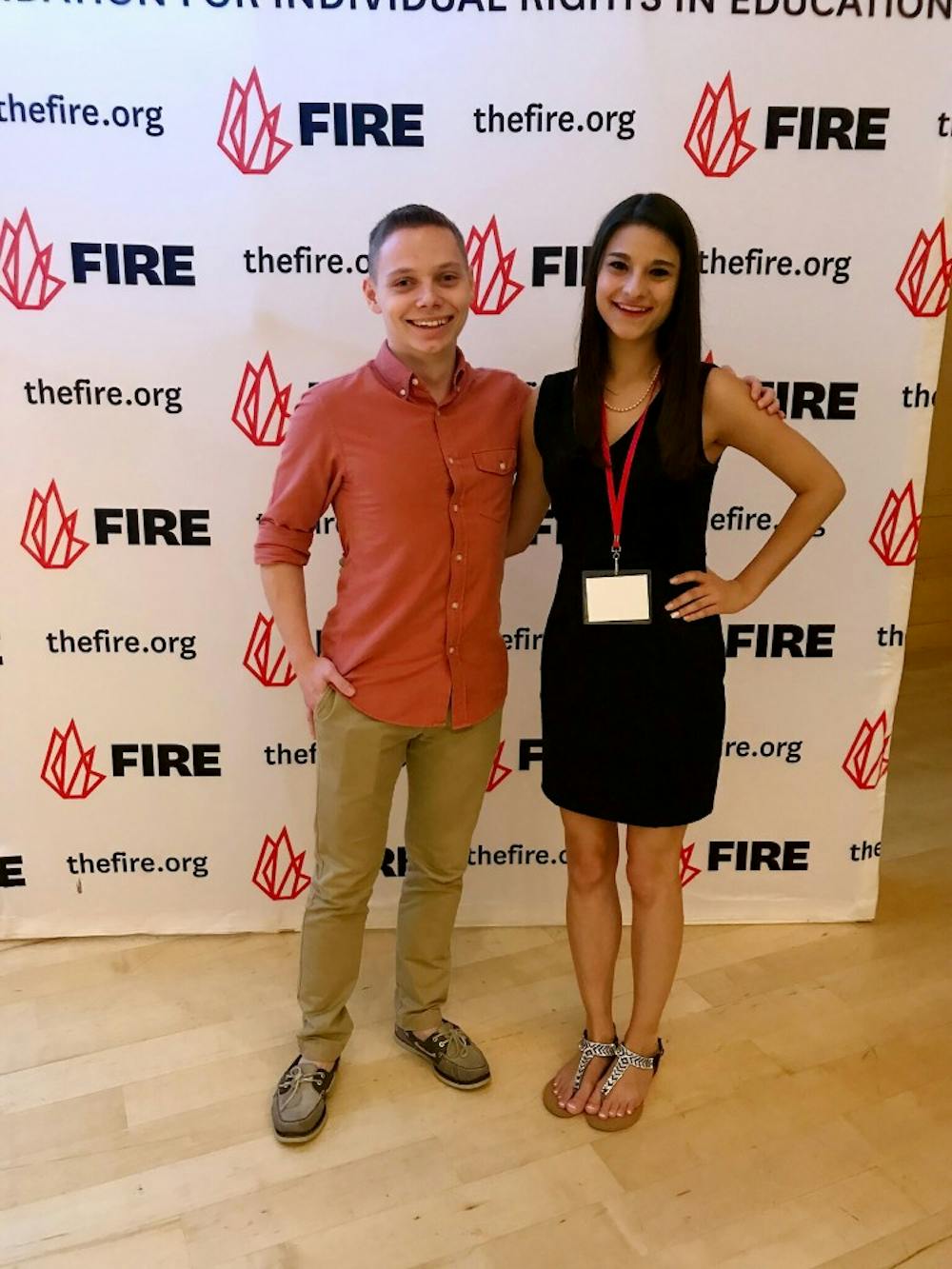UB students who get in trouble at the school aren’t allowed to have lawyers or law students defend them during administrative hearings.
Members of UB’s Civil Liberties Union want to change that. They say UB’s practice of making students face administrators alone could be a violation of laws that protect due process.
The Student-Wide Judiciary’s current rules don’t let students have a lawyer defend them. They cannot even have a law student defend them. They have to do it on their own.
Joe Wolf, chief justice of the Student-Wide Judiciary, is asking administrators to change the
Wolf, a senior social sciences interdisciplinary major, is the president and founder of UB’s Civil Liberties Union chapter. The CLU aims to promote awareness of constitutional rights. It was approved as a temporary club by the Student Association this September.
Joshua Lippes, lead attorney for the student-run nonprofit Sub-Board I, said this practice is a “blatant violation” of the U.S. and New York State
“The university is part of New York State,” Lippes said. “It has to provide you due process. Part of that due process is a right to counsel.”
The process can be inherently unfair to students, Lippes said,
“If they’re prosecuting instead of just being fact-finders, it’s like, ‘I’m making my argument,’ and, ‘I’m finding myself accurate,’ Lippes said. “So it takes the fairness out. I believe they’re all trying to be fair; but it’s an innate, human instinct to believe in yourself.”
Wolf said the CLU wants to make the process fairer for students. Law students already work with students who are charged with an
“To me, learning to represent yourself is great, but not when you’re facing expulsion for something you potentially didn’t do. That’s absurd; I mean, that’s terrifying,” Wolf said. “And we’re trying to note, we don’t want [high-profile Buffalo defense attorneys] Joel Daniels or Paul Cambria coming into UB to defend people in a substance-abuse crime. All we really want is for UB law students to defend students in these potentially life-altering proceedings.”
Elizabeth Lidano, director for Student Conduct and Advocacy, said she thinks it is important for students to speak for themselves, as part of an “educational process.”
“However, I support good advisement throughout the conduct process,” Lidano said in an email. “This is in line with best practices in student conduct nationally. Also, I think it is important to note that the primary goal of the student conduct process at any institution is that of learning.”
Universities across the country continue to struggle with how to discipline students while protecting their rights.
In 2015, the California Supreme Court ruled in favor of a UC San Diego student accused of sexual assault. The court determined the student had his due-process rights violated during the school’s judicial process, according to The San Diego Tribune.
Universities are not courts of law; the current panel consists of administrators from the Office of Student Conduct and Advocacy. The
“In a court of law a person can be ‘represented,’ but in a student conduct process, the student will need to speak for themselves with an adviser to assist them,” Lidano said.
In 2016, UB expelled five students and suspended 26 others. Lidano said the charges were split evenly between violence; selling drugs; Title IX or Violence Against Women Act violations; and theft.
“They do say that it’s not a judicial proceeding. But the ramifications for being found responsible for these charges can affect somebody for the rest of their life,” Lippes said. “If you are charged and found responsible
Eric Weyand, a third-year law student at UB, has been a student defender for three years. He has seen cases where a student could have had a better outcome if someone was able to speak on their behalf, he said.
“We want to make sure the process is fair, that people are not automatically found guilty, that they’re presumed at least some semblance of innocence, and that the rules are followed,” Weyand said. “We’re not here to get anyone out of charges. We’re not here to tell anybody to lie or to find a legal loophole. We just want to make sure it’s fair.”
Wolf presented his concerns at a Council of Advocacy and Leadership meeting on Sept. 21, in front of President Satish Tripathi and Vice President Scott Weber. Tripathi and Weber said they would look into the matter, according to Wolf.
Sarah Crowley is the senior news editor and can be reached at sarah.crowley@ubspectrum.com





